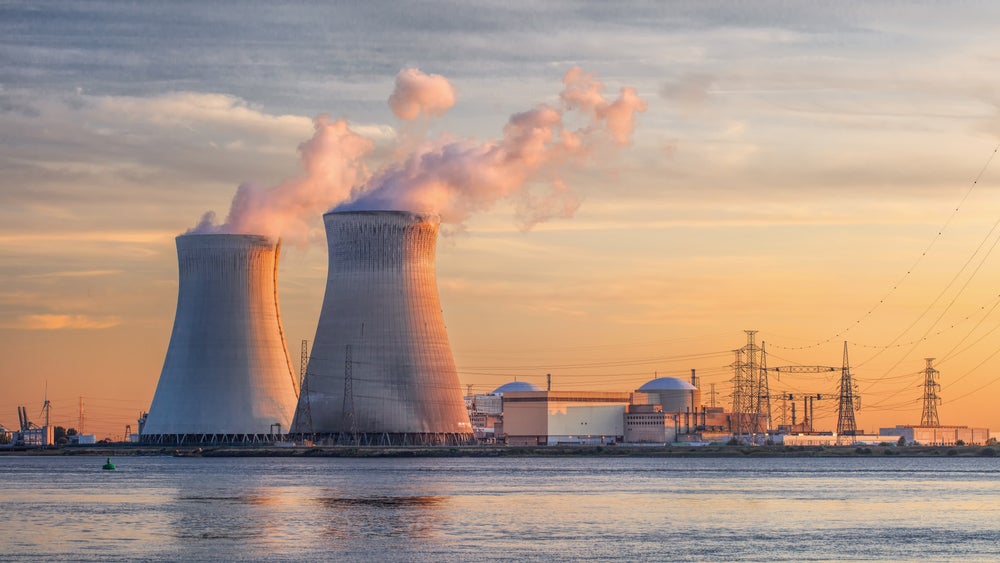The Belgian Government has signed an agreement with French utility company Engie to extend the life of two of its nuclear power plants.
The Tihange 3 and Doel 4 nuclear reactors were scheduled to be shut down in 2025, but in March 2022 the government initiated talks with Electrabel, the Belgian subsidiary of Engie, to extend the operation of the two reactors, enabling the retention of 2GW of power capacity until 2035.
Negotiations with Electrabel began in July 2022 and terms for the operation of the reactors for a further ten years were considered. After the signing of a non-binding agreement in January, the final and legally binding agreement has now been signed.
The agreement confirms the commitment by both parties to implement Flexible Long-Term Operation, with an estimated investment of €1.6bn–2bn ($1.7bn–2.2bn) and a predicted restart date of November 2025.
A contract for difference mechanism will be used to cover renumeration for electricity generation, reducing the risk associated with investment. The strike price for the electricity output will be based on the cost of extending the operation of the nuclear units, which will be estimated by the Federal Agency for Nuclear Control. An initial cost will be set in 2025, and then updated in 2028 based on the actual cost of the extension to cover the period up to 2035.
Catherin MacGregor, CEO of Engie, said: “We are very pleased to announce the final signature of this agreement, which allows a balanced sharing of risks associated with the extended operation of the two nuclear units and eliminates uncertainties for Engie Group related to the evolution of nuclear waste liabilities. Our teams are working hard on implementing the long-term operation as quickly as possible to strengthen security of electricity supply in Belgium.”
Belgium currently has five operable reactors generating around 50% of its electricity.
The importance of nuclear power as a source to propel the energy transition was stressed by EU nations at the recent COP28 conference in Dubai. Meera Kotak, associate principal in consultancy Charles River Associates’ energy team, said: “Last week’s agreement by the EU governments to add nuclear and sustainable fuels to a list of strategic ‘net-zero’ technologies is a positive sign that the EU is intent on maintaining its clean energy technology market presence.
“This can be seen not only as a reactive measure to counter Chinese and US competition but also a proactive way to stay in the forefront of the COP28 commitment to triple global nuclear energy capacity by 2050.”









